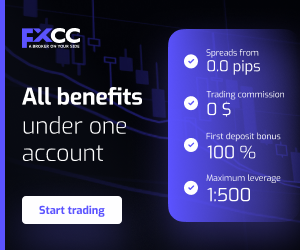Can anyone become a successful Forex trader?
Without a doubt successful retail Forex traders come in all shapes and sizes, from all corners of the planet. Some take to the task very quickly, some take longer, some do it part time, others full time, some are fortunate to have the time to dedicate towards what is a very complex challenge, others don’t.
It’s that last point that initially we’d like to concentrate on, as it flies in the face of the accepted wisdom that there’s some undiscovered, unique talent involved in trading, when the reality is that the talent we might associate with trading success isn’t actually a talent at all. Many of us will stumble upon trading by accident, rather than design. As an example, there’s been a significant upsurge in retail forex trading, ever since emergency interest rates became the norm, from 2008 onwards.
We’re seduced by typical trading room and trading floor images delivered by the mainstream media regarding trading; young folk, sleeves rolled up, two landline phones (one resting on each ear), as they’re barking “buy, sell” instructions to their counterparts. Such an image belongs in a museum of moving art, given that it’s a tiny fraction of trading business, in any form, that’s still conducted that way. The real talent now lies in financial engineering, as there’s no instinctive methods to trade markets that will deliver any long term bankable results, on which we can build an income and future.
Over 80% of Wall Street equity trading is now conducted by algorithms, and a significant proportion of that is conducted in the realm of what’s termed HFT, high frequency trading, the figures are similar in relation to forex trading. If there’s any talent involved in trading it’s with the maths and physics quants who code and devise trading programs, it’s not the manual trader who has a hunch that EUR/USD may rise, based on a combination of technical patterns and upcoming fundamental calendar news.
So, as we revert back to the original question; “can anyone become a successful trader?” Yes is the answer, if they have the time. Time is perhaps (other than the obvious issue of money), the most critical factor that’s a potential barrier to our success.
As has been discussed many times, you don’t need much cash to begin trading, in fact (initially) it’s best if you don’t pledge too much of your savings into your first account. In the early days we want to see a return, just a modest return on our investment (ROI) before scaling up. If we can project 1% gains per week, circa 50% ROI year on year growth on our small trading account, which can be opened for as little as $500, we can now feel confident to place more money in our account and trade higher lots.
However, if we don’t have enough spare time, how will we ever develop the skills necessary to become accomplished traders? Is finding the time to trade actually an underdeveloped and unrecognized skill? Perhaps it is. It requires some of the basic life skills we often neglect, such as; organization, discipline, repetition, skills that we’d probably not associate with trading when we first discover it as an opportunity.
